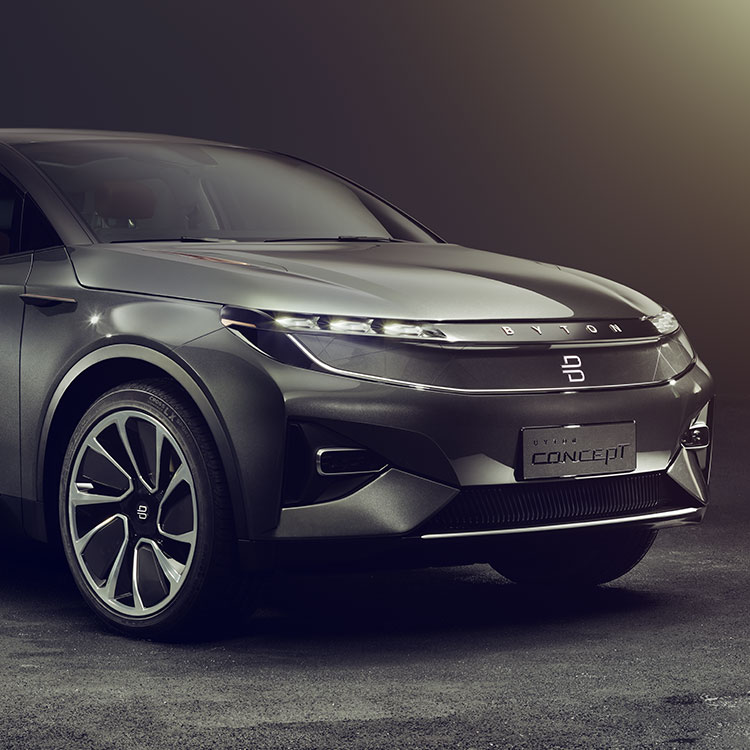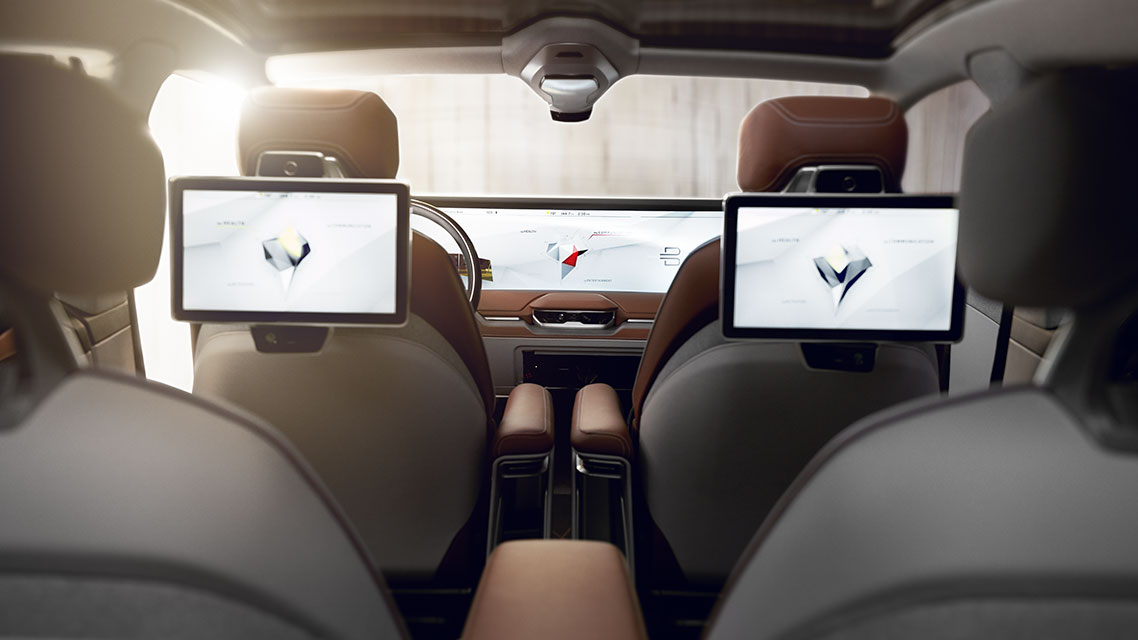All-Electric SUV Features Massive Display Screen
Finally, it looks like one of the Chinese-financed, Silicon Valley-oriented electric vehicle startups appears to be paying attention to the current market. Byton, headquartered in Nanjing, China, but with design offices in Munich, a technology office in Silicon Valley and three other Chinese offices, introduced its first concept car at CES yesterday. It’s all-electric, of course, but more important, it’s a midsize SUV/crossover.

That exterior may be less important than the interior from Byton’s perspective, but more on that later. When Clean Fleet Report was on a tour of Byton’s Silicon Valley offices last month, the details offered on the car were sketchy, but intriguing. The company’s up-front partnership with key suppliers—Robert Bosch and Fuerencia—was highlighted. Those relationships, usually hidden or minimized by both OEMs and startup EV companies, were presented as proofpoints of the viability of the Byton operation. The technology, much of it coming from the Santa Clara, Calif., office, including huge display screens with sophisticated human-machine interface (HMI) options, an extensive use of facial recognition and a high level of autonomous technology. None of this was exception on its own (something shared by the car itself), but the total package appears to be Byton’s main value proposition.
Speaking of value proposition, the company said it expects the car to retail for about $45,000 when it comes to the U.S. in 2020. It will first be retailed in China, where it will be built. The platform architecture on which the unnamed SUV will be built will underpin the two following models, a sedan and a multipurpose vehicle (van in Chinese parlance) that will follow in 2031 and 2022.
Coming in Two Flavors
The 5-door SUV, which follows the basic shape and layout of its gas, diesel and hybrid competitors, will come in two flavors. The entry-level two-wheel drive model, which will start at $45,000, will have a single 268 horsepower (hp, 200 kW) motor driving the rear wheels and backed by a 71 kWh battery that delivers a promised 248-mile range. The four-wheel drive version will pack two motors with a total of 402 hp (300 kW) and a 95 kWh battery pack good for a 323 mile range. It’s pricing hasn’t been announced. Like most fast-charge capable EVs, the Byton will be able to recharge to 80 percent of capacity within 30 minutes at a rate of 12 kW/minute.
The whole package is in a 115-inch wheelbase, 191-inch overall midsize crossover, a slightly longer wheelbase than the category stalwart Lexus RX 450, but within a couple inches in overall length.
The Big Screen
Byton’s big news—and we aren’t throwing hyperbole this time—is inside. The front seat passengers will be confronted with a 49-inch wide, 9.8-inch high screen that will recognize the occupants and deliver personalized entertainment and information. It will respond to voice, gesture and touch. It’s augmented by an eight-inch screen in the steering wheel, another first, and two large screens on the seat backs for any rear passengers. The comparisons about cars becoming iPhones on wheels are becoming a physical reality. At the company’s Silicon Valley launch, executives

The front seats from Faurencia swivel in 12 degrees to facilitate activities while the car is in autonomous mode. The initial models are expected to ship with Level 3 autonomy, similar to what is currently found in Teslas and the latest Cadillac, but Byton expects a Level 4 system to be enabled with a software upgrade by the time the cars come to America.
At the Silicon Valley headquarters launch, Dr. Daniel Kirchert, an automobile industry veteran who is president and co-founder of Byton, talked frankly about the financial aspects of a startup. While they have a Chinese plant with a production capacity of 300,000 vehicles/year under construction, they expect to use the driveable concept they just introduced (they had three on stage) as part of a fundraising campaign they’ll undertake at mid-year. Like many EV concepts we’ve seen during the past couple years, the Byton still has some ground to cover before it can join the rank of auto companies.
Other CES Stories:
News: 2019 Hyundai Nexo FCEV
News: Kia Introduces Niro EV Concept
News: Fisker Introduces EMotion for High Rollers
Related Stories You Might Enjoy:
News: Lucid Motors Introduces High-end Electric Car

5 thoughts on “News: Byton Introduces Electric SUV”